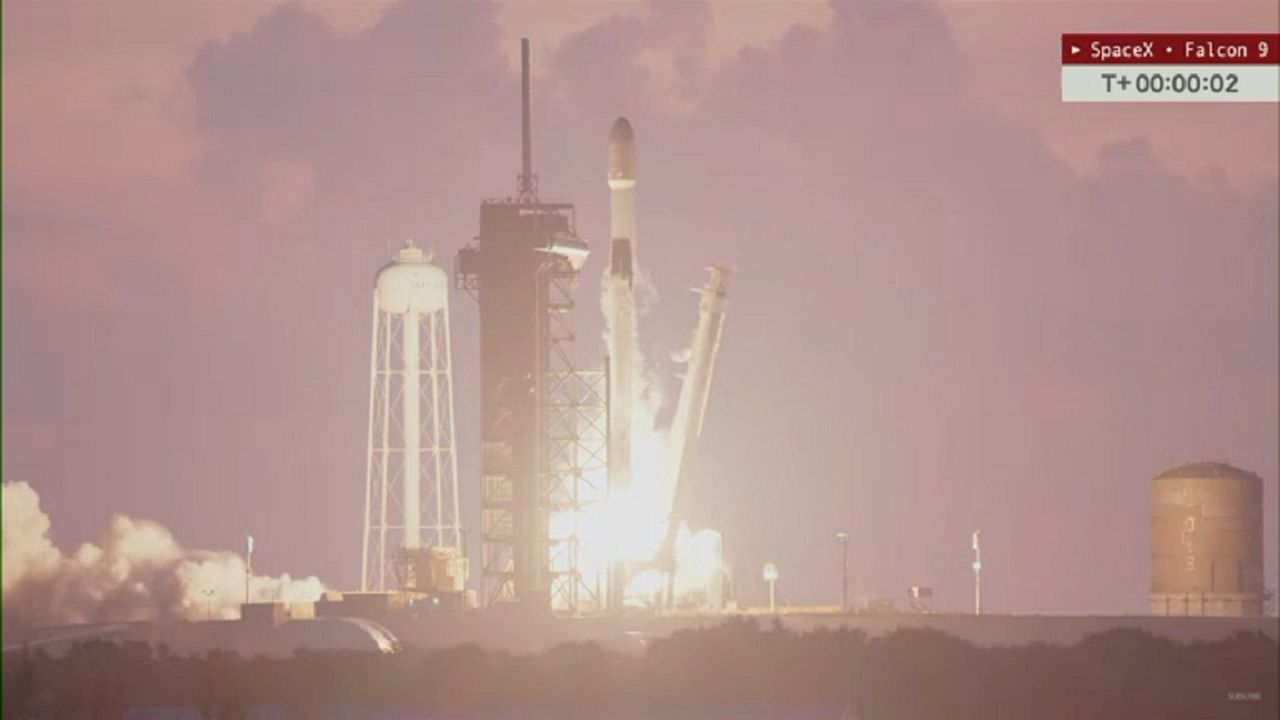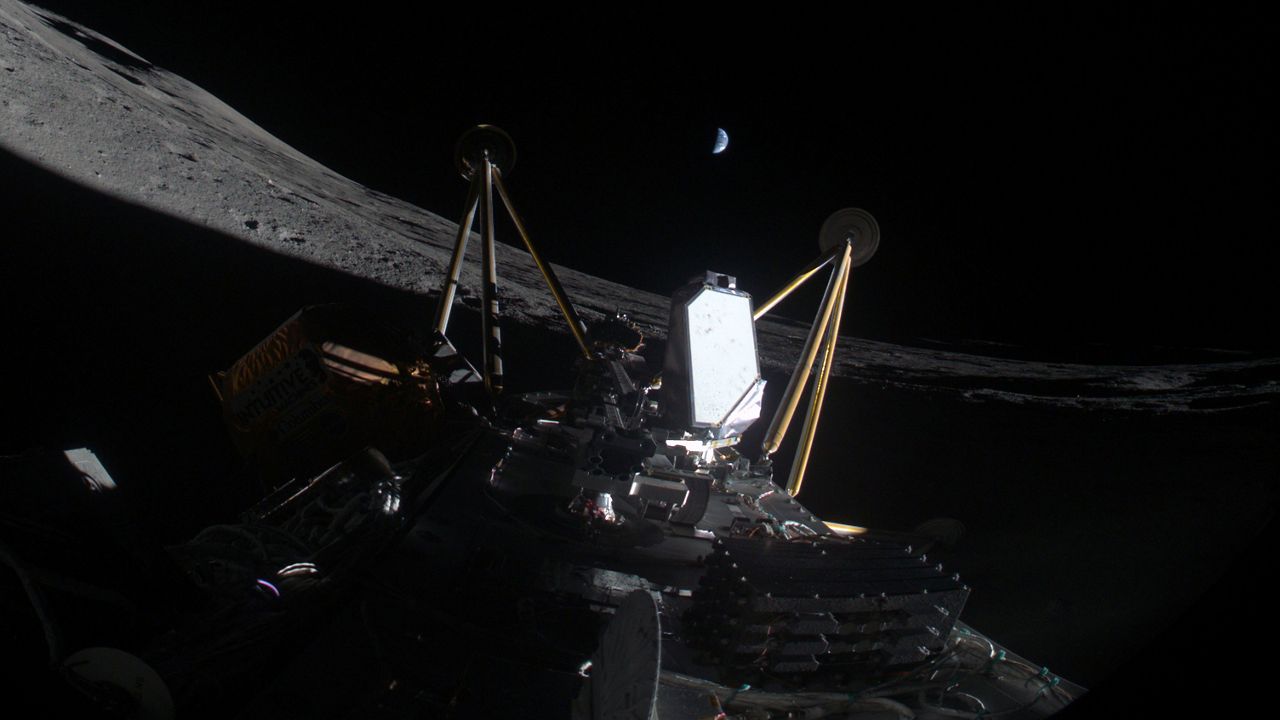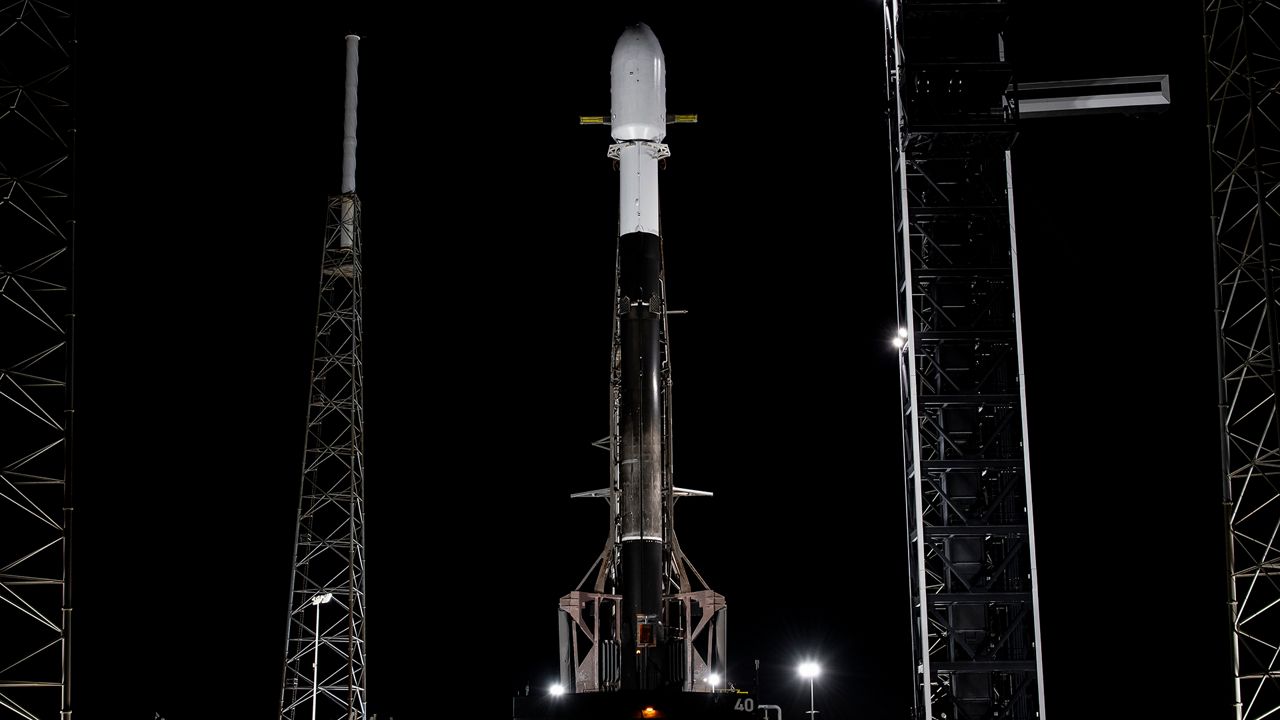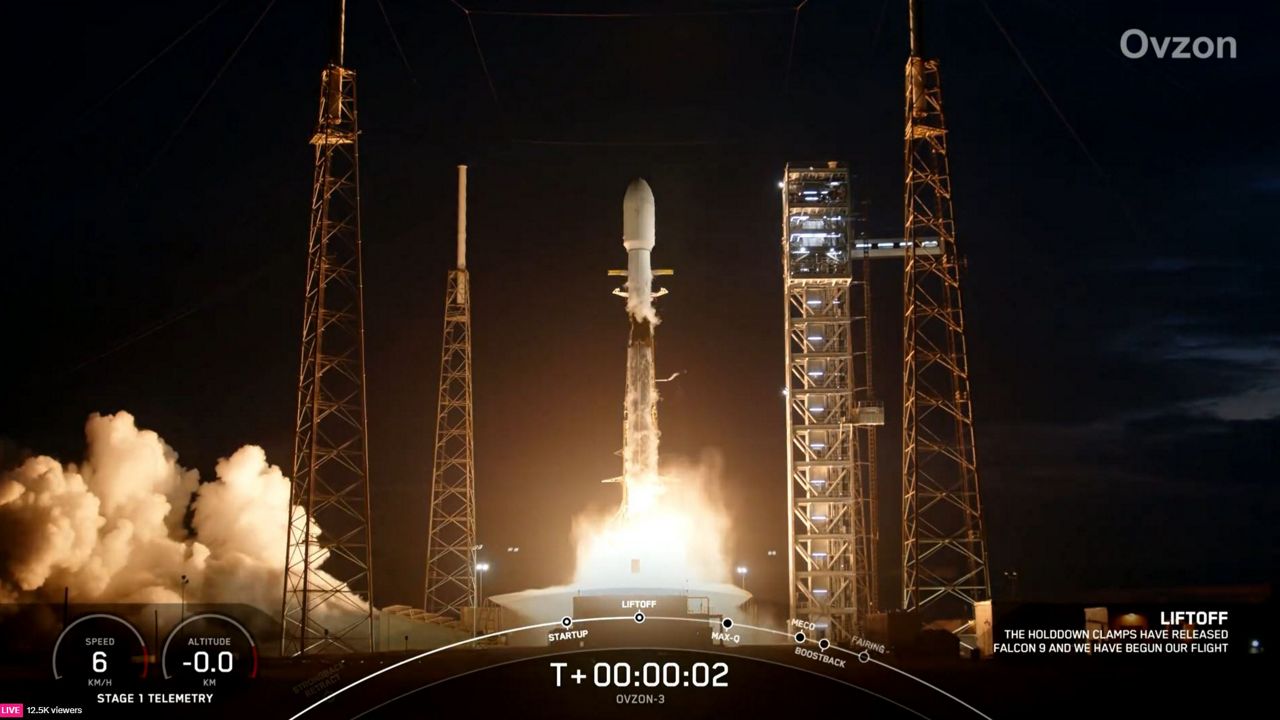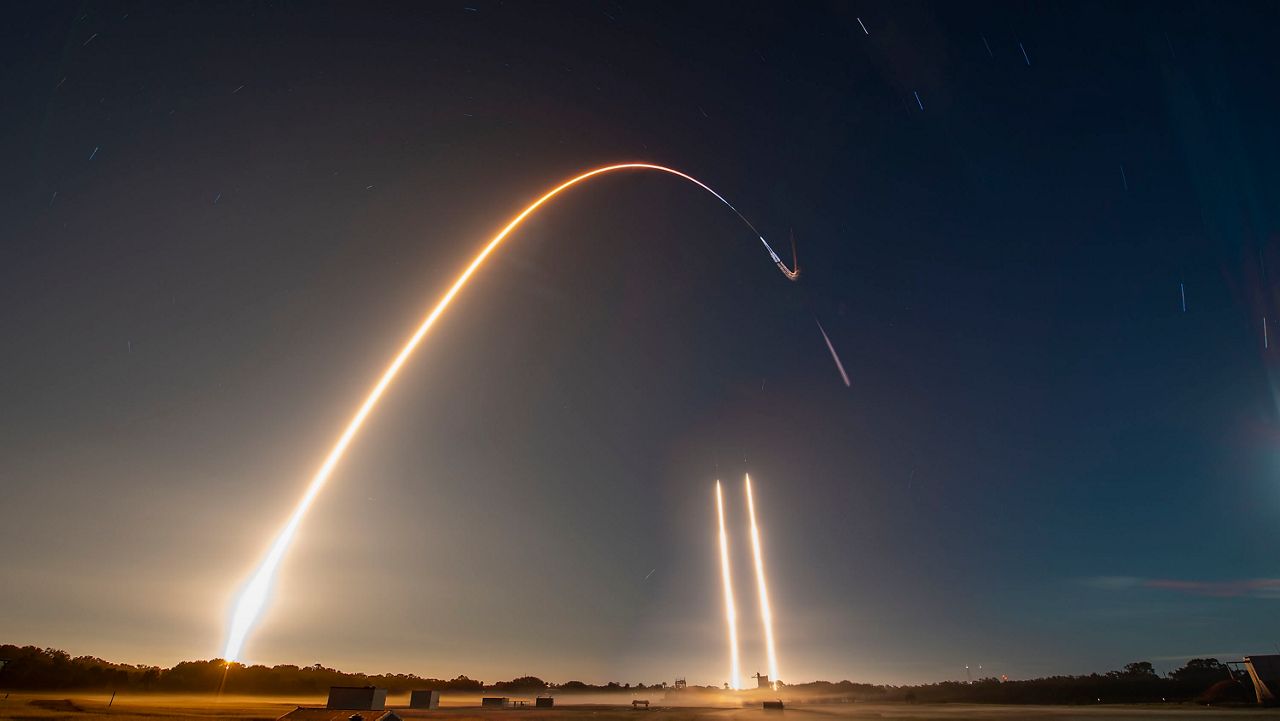CAPE CANAVERAL, Fla. — After several delays, SpaceX finally launched its Starlink 10-7 mission Monday morning.
The Falcon 9 rocket lifted off from the Kennedy Space Center at 6:37 a.m.
The mission was originally scheduled for Aug. 10 at 9:03 a.m., following the successful launch of the Starlink 8-3 mission Saturday morning.
The 10-7 mission was moved to Sunday morning at 7:21 a.m., then delayed again at 10:49 a.m., and a third time at 10:59 a.m.
Just as the company’s Falcon 9 rocket was about to take off, SpaceX had reset its launch to Monday morning.
The countdown was held at 46 seconds before takeoff Sunday morning.
Today's Falcon 9 launch of @Starlink was paused at T-46 seconds. Vehicle and payload are in good health and teams are resetting for a launch attempt on Monday, August 12
— SpaceX (@SpaceX) August 11, 2024
Starlink 8-3 launch
SpaceX's Starlink 8-3 mission sent up 21 Starlink satellites aboard their Falcon 9 rocket from Space Launch Complex 40 at Cape Canaveral Space Force Station after its first attempt was pushed back.
Falcon 9 delivers 21 @Starlink satellites to low-Earth orbit from pad 40 in Florida pic.twitter.com/E5SANHcZZh
— SpaceX (@SpaceX) August 10, 2024
On Friday, SpaceX pushed its Starlink 8-3 mission to Saturday morning after the company cited weather conditions at the recovery site for the postponement.
Falcon 9 lands on the Just Read the Instructions droneship pic.twitter.com/tVmHGj04p1
— SpaceX (@SpaceX) August 10, 2024
On Friday, SpaceX pushed its Starlink 8-3 mission to Saturday morning after the company cited weather conditions at the recovery site for the postponement.
Going up
Mission 8-3 marks the 21st flight for the first-stage booster, B1067, which previously launched:
- CRS-22
- Crew-3
- Turksat 5B
- Crew-4
- CRS-25
- Eutelsat HOTBIRD 13G
- mPOWER-a
- PSN SATRIA
- Telomsat Merah Putih 2
- 11 Starlink missions
Following the stage separation, the first-stage rocket landed on the Just Read the Instructions droneship, which is stationed in the Atlantic Ocean.
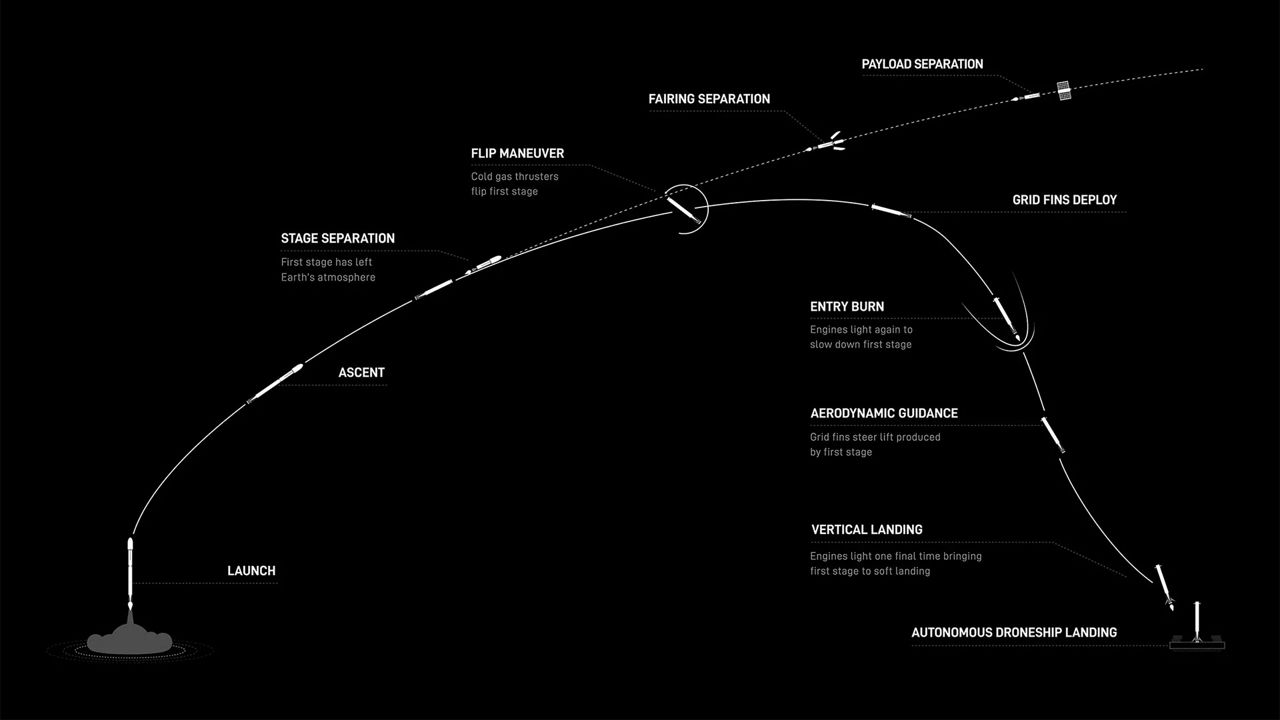
Mission 10-7 is expected to mark the 17th flight for its first-stage booster, B1073, which previously launched:
- SES-22
- ispace's HAKUTO-R MISSION 1
- Amazonas-6
- CRS-27
- Bandwagon-1
- 11 Starlink missions
Following the stage separation, the first-stage rocket will land on the A Shortfall of Gravitas droneship, which is stationed in the Atlantic Ocean.
About the mission
The 21, then 23 satellites from the Starlink company will be sent to low-Earth orbit to provide internet services to many parts of the Earth.
SpaceX owns the Starlink company.
Before these launches, Jonathan McDowell, of Harvard-Smithsonian Center for Astrophysics, recorded the following:
- 6,313 are in orbit
- 5,823 are in operational orbit




